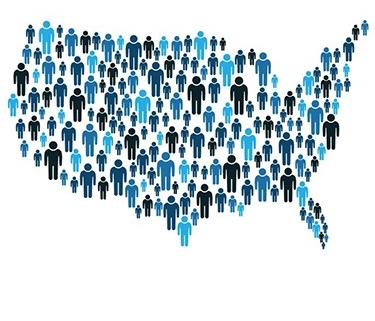#becounted
Are you ready to be counted? The 2020 Census is coming up and it is critical for people with intellectual and developmental disabilities (I/DD) and their families. The census seeks to include every individual living in the United States, but many people with disabilities are historically left out of the count—harmfully impacting funding, services, and supports.
Census data helps guide the distribution of more than $800 billion in federal funding. The count, conducted every 10 years, is also directly tied to key funding streams that support people with disabilities to live in the community, instead of institutions. It determines political representation and affects public policy, as well as programs and supports in housing, voting, education, health care, and public health. The Census Bureau recognizes people with disabilities as a hard-to-count population, meaning that they may not be fully represented in the count, and that the programs that are important to them may not receive the consideration they deserve.
The Arc is excited to announce a major initiative to find solutions. We are pleased to share that we have received a grant from the Ford Foundation to launch a project to help ensure that people with disabilities are counted in the 2020 Census. We recognize the Ford Foundation’s generosity and engagement in the fight for disability rights.
In planning for Census 2020, The Arc will develop and share materials to motivate and inform people with I/DD to respond to the count in order to produce more complete and fair data. Our outreach will include our chapter network and membership, and partnerships with national disability groups and advocacy organizations.
The Arc has also joined the Census Bureau’s National Partnership Program to help raise awareness, share resources, and work together to ensure that all people are counted in 2020.
#becounted
All of our materials will be posted at thearc.org/census – please check back soon!









